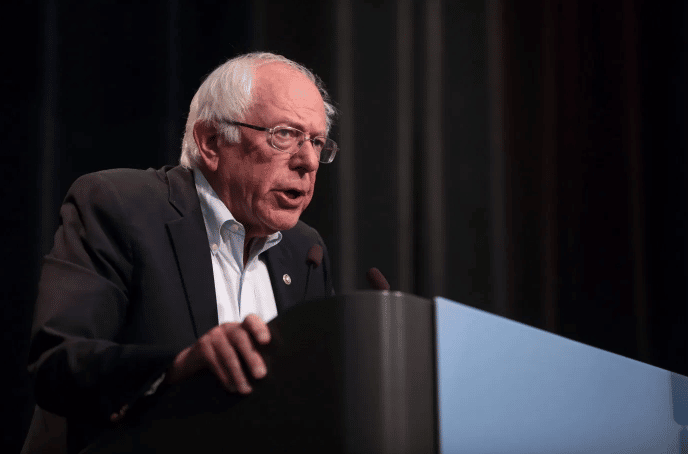The likes of Bernie Sanders and Alexandria Ocasio-Corez consider the Nordic model a socialist utopia. It provides ‘free’ healthcare, ‘free’ education, and strong social protections. These are the core goals for some of the modern-day, self-professed, ‘democratic socialists’. Sanders, for example, often cites the region as an inspirational roadmap. The Nordics offer several taxpayer-funded programs, most of which Sanders is in favor of. At the same time, the standard of living is relatively high.
The conclusion Sanders draws is that a big welfare state can be used in conjunction with capitalism. In part, he is correct. It can ‘work’ in conjunction, but there are consequences.
Does that mean that the ‘Nordic model’ can be classified as ‘socialist’? A big welfare state can be associated with socialism, but is not in and of itself socialist. Government control in the form of tariffs, price controls, investment freedom, and the freedom to start a business, are all factors defining socialism.
The Nordics believe in private property
The restriction on private business is at the top of any socialist agenda. In a socialist economy, the government owns and controls the means of production — personal property is sometimes allowed, but only in the form of consumer goods. The Nordic region, however, operates a very business-friendly environment. In the World Bank’s Ease of Doing Business, Denmark and Norway both rank higher than the US at 3rd and 7th place respectively, whilst Sweden and Finland also rank highly at 12 and 17th.
You would expect a socialist state to have centralized control and strong regulation. But the Nordic region largely adopts a neoliberal approach to business. The neoliberal approach is especially evident in Sweden. Since the 1990s, its public spending fell from a high of 68.4% in 1993, to 48.9% in 2015. The Swedish government abolished inheritance taxes and have lowered income taxes.
That’s not all.
The Nordics have privatized many activities that government still performs in the United States. These include passenger rail, airports, air traffic control, highways, postal services, fire departments, water systems, and public schools, among many others. Furthermore, the regulatory system in the Nordics is very business-friendly. If we look at regulatory quality rankings, Finland, Norway, and Sweden rank within the top 10 globally. The rankings “capture perceptions of the ability of the government to formulate and implement sound policies and regulations that permit and promote private sector development.” It considers government interventions such as price controls, tariffs, discriminatory taxes, and financial freedom.
Yes, the Nordics have a generous welfare state, public healthcare, and schooling; but that is where the similarities with socialism end. They don’t have any minimum wage laws, have low corporate taxes, and have much simpler tax systems than does America. When considered alongside the other factors mentioned, it is difficult to see how they qualify as socialist. When we compare the Nordics to the level of government control in the US, we could say it, too, is a socialist nation. As Daniel Mitchell said in his FEE.org article, “If Scandinavia is socialist, then so is the U.S.”
Bernie isn’t offering a Nordic model
Whilst Sanders wants to reverse corporate tax cuts back to 35%, the Nordic region operates under a regime of 22%. Low costs to business help incentivize entrepreneurship and business creation. The Nordic region makes no mistake in taxing the consumer directly as opposed to business entities. This is the very opposite of the opinion of democratic socialists like Sanders.
Democratic socialists also believe in protectionism. Sanders has made his case against free trade. And Elizabeth Warren is more concerned with blocking competition out with strong regulation. They don’t see the benefits of opening up their domestic markets to cheaper international labor. However, the Nordic region does.
When the European Union was negotiating a trade deal with the US, the Nordic region was one of its key supporters. At the same time, Sanders labeled a provisional agreement as ‘disastrous’. In 2018, when President Trump was looking to re-open the agreement, Warren labeled it as a ‘slap in the face’ to US workers.
The likes of Denmark, Sweden, and Norway, all rank highly amongst the most globalized countries in the world. There is some overlap with socialism in the form of universal healthcare and free education. However, there isn’t much else the two systems have in common. In addition to corporate taxes and free trade, both sides also differ with regard to the minimum wage. The Nordic region believes in a collective bargaining system organized by labor unions. However, Sanders is in favor of an enforced $15 minimum wage.
So Sanders disagrees with the Nordics on several issues. First, free trade. Second, low corporate taxes. Third, privatization of industries. Fourth, the level of government regulation. Fifth, minimum wages.
There are also several other disagreements between systems. But for Bernie to compare his vision to the Nordics is ludicrous. They are nothing alike.
Reprinted from BeingLibertarian.com.







